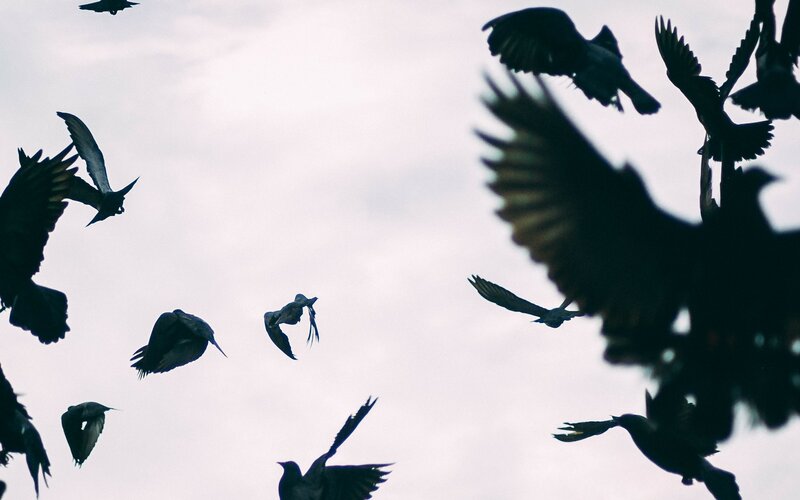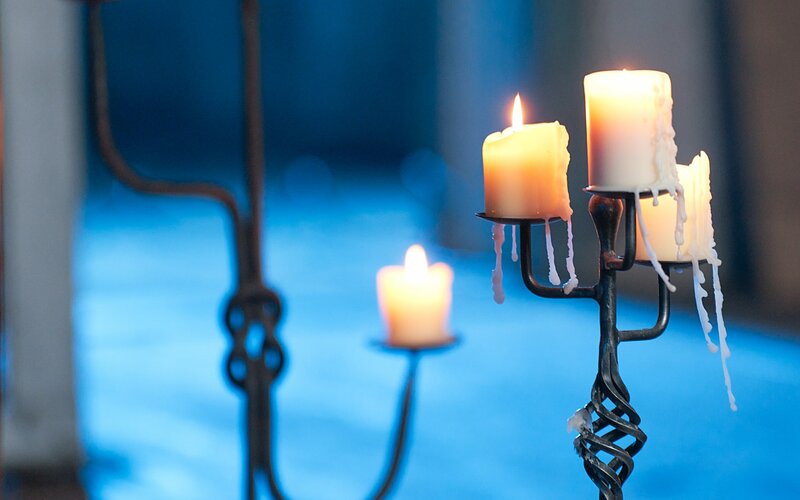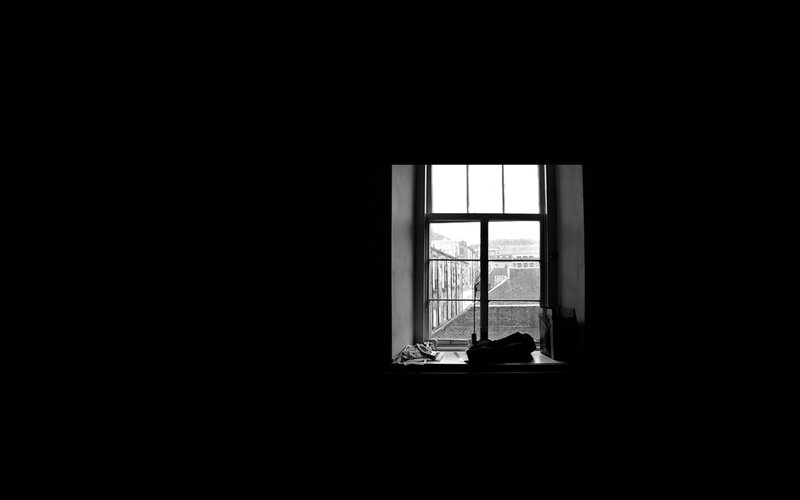
When we think of poetry, it’s often the works of the world’s best love poets that spring to mind. Poems of desire, infatuation, and the ever-painful heartbreak, for example.
But beyond the world of romance, there are many other topics that bewitch the minds of poets – war, grief, and tragedy to name a few. This is where the genre of dark poetry comes in.
In this article, we’ll explore what dark poetry is, who some of its most famous voices are, and share some top tips to help you start writing your own dark poetry.
What is dark poetry?
Writers who take to dark poetry tend to explore the darker side of human nature. The themes of their work might focus on suffering, tragedy, or death, for example, rather than the warmer subjects chosen by many other famous poets – romantic desire, beauty or nature.
Dark poets will contemplate dark ideology – like confronting their own mortality, for instance. Their writing will often float between morbid and even disturbing topics, so readers will often get a good sense that the writer may be struggling with heavy thoughts and feelings, or their mental health. In turn, you can expect dark poems to evoke melancholy and uncertainty in some readers.
It’s not all doom and gloom, though. Many people love this genre because it speaks to them in some way. They too recognise the pain behind the words on the page and find comfort in knowing they’re not alone. In the same way that love poets turn to their pages to express their overwhelming desire or yearning, we can assume those turning to dark poetry to express their darkest, and most intimate, thoughts are finding relief in the pages too.
Let’s take a look at some famous dark poets and their work.

Famous dark poems
1. The Raven by Edgar Alan Poe
Poet and author, Edward Alan Poe, is famous for his dark romantic imagination. In one of his most famous poems, The Raven, Poe writes of being greeted by Raven who frustratingly only answers him with the same word. It tells the tale of a woeful lover who is plagued by his own mental torment. It’s dark poetry at its finest. You can read the poem here.
2. I felt a Funeral, in my Brain by Emily Dickinson
One of Dickinson’s most recognisable poems, I felt a Funeral, in my Brain, explores themes of madness and death. It’s a typical Dickinson poem – dealing with loss, death and mortality and glaringly reveals a soul in despair. In the late 1860s, it’s said that Dickinson fell into a deep depression, and spent a lot of time in solitude, which may come as no surprise to those reading her work. In I felt a Funeral, in my Brain, Dickinson portrays events surrounding a funeral – which many believe is the writer reflecting on her loss of self and sanity. Read the poem here.
3. Lady Lazarus – Sylvia Plath
Celebrated for many contributions to the literary world, Sylvia Plath is particularly famous for her confessional and rather dark poetry. Most of Plath’s poems explore her own mental anguish, her tumultuous marriage with Ted Hughes, and shed light on an obsession with death. In her poem Lady Lazarus, Plath discusses her suicide attempts and alludes to a third. You can read the work here.

How to write dark poetry
Writing poetry comes differently to everyone but if you’re feeling inspired to write your own dark poem, here are a few tips to bear in mind throughout the writing process.
1. Read some dark poems
Before you get started, it’s important to get a little more familiar with the genre of dark poetry. As Carol Ann Duffy says in her BBC Maestro course; “I believe it is impossible to write a good poem unless you’ve read some good poetry.”
Ask yourself, who are some of the leading voices in dark poetry? What do they have to say in their work, and what makes it great? Take the time to consume their work. Then, analyse what you like about their poems. Whether it’s tone, language, or form, this may help you bring new ideas forward in your own writing.
You can start with the works of Poe, Dickinson and Plath linked above, or you can find your own. There are plenty of poets whose work leans towards the dark poetry realm (some of your favourite poets may surprise you). So, it’s certainly worth having a dig around online or in anthologies too.
“There are so many things that poems can give us, and a way of seeing is one of the most important ones,” says Carol Ann Duffy. Spending some time diving into the worlds of the best dark poets can help prime your mind to think like a poet of the genre. It might help you come up with new ideas or topics to explore and ways in which you can do so too.
2. Find a subject that compels you
Coming up with inspiration for any poem can seem daunting, let alone dark poetry. Confessing your innermost thoughts, feelings, or experiences with heavy or difficult topics can feel exposing. But that’s the magic of poetry – it’s a form of expression. And the more honest you are on the pages, the more likely readers will connect with what you have to say.
You may have experiences of your own you wish to write about. In the words of Carol Ann Duffy, “the voice that’s true to you, will be the voice that’s true in your so poem”. So, if you have a particular event or experience that you feel compelled enough to write about, it’s a great place to start.
But not everyone has their own story to reflect upon. Or it’s not something everyone feels ready to do. So why not look elsewhere for inspiration?
“I found stories in news or history,” says Carol Ann Duffy in her online poetry course. “It’s incredibly liberating to stand behind another persona, another voice.” Perhaps there is a character in a book you admire or a famous figure in history with a story you want to re-tell? You could start there.
3. Brainstorm before you write
Some poets are ready to jump straight into writing. To get your creative juices going it can be a good idea to do a brainstorming exercise. What do you want to convey in your poem? How do you want it to flow? Do you have a particular form you want your poem to follow?
Before it comes to writing, creating a list of words or phrases that capture the essence of what you might want to say can be really useful.
As poets, we come to the poem because we feel deeply, we want to put that in a poem to share.
Carol Ann Duffy, Poet
This is where reflection plays a role. Whether you’re writing from your own experience or the story of another person – jot down some of the immediate thoughts you’d like to convey. Is the persona you’re adopting feeling hurt by something? Or plagued by something? Are there any powerful words that spring to mind conveying these feelings?
Consider what mood you want to evoke. Some examples could be despair, sorrow, darkness, grief, loneliness or guilt. Maybe you want your poem to feel cold rather than warm? Jot down words that spring to mind when you think of the cold. They could be grey, cloudy, damp, black, charcoal or thunder, for example.
It’s also a good place to jot down any similes or metaphors you can think of that capture the mood of your poem. Or maybe there are certain memories or places you associate with the experience you’re writing about? Imagine yourself in these. Describe how you feel there or what you see. This can help build a sense of place in your imagination for you to revisit throughout the writing process.
You can use your page of words, phrases and notes to guide you throughout the writing process.
4. Draft, re-draft and draft again
The first draft is never the final draft says Carol Ann Duffy. You may find that the form you’ve chosen isn’t working and that you need to write in free verse instead. You might also find yourself reworking a certain line twenty times before it works. And that’s ok. When you’re trying to capture personal and complex topics, it can take a few attempts to articulate what you really want to say.
When it comes to the writing process, “you have to do your very best for that poem,” says Carol Ann Duffy. “And that involves drafting, re-drafting, thinking again, drafting again.”
But how do you know when it’s done? “The poem tells you when it’s finished. That comes from instinct,” says Carol Ann Duffy. “The poem comes to the end of itself. There’s no room for anything. There’s room for changes, but there’s nothing more to be said.”
So, there you have it, a guide on dark poetry. Feeling compelled to hit the pages? Take a look at Carol Ann Duffy’s course on Writing Poetry to help get you started.

Give the gift of knowledge
Surprise a special someone with a year's access to BBC Maestro or gift them a single course.


